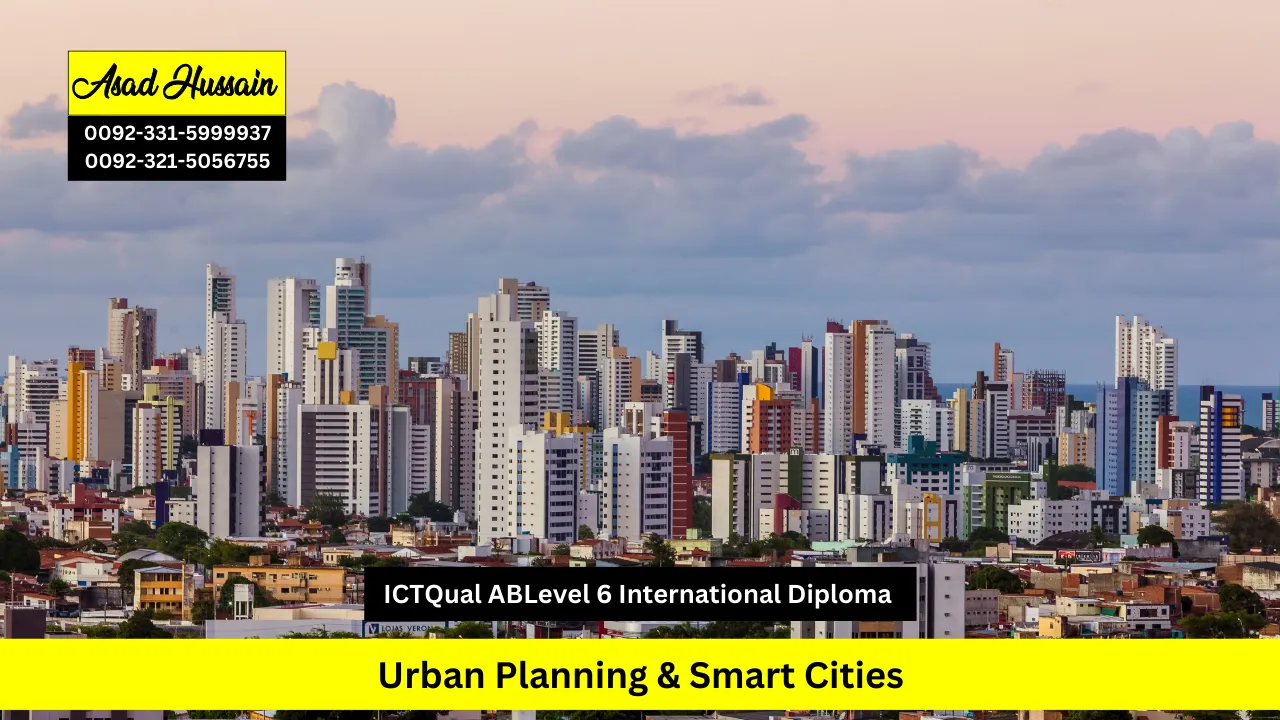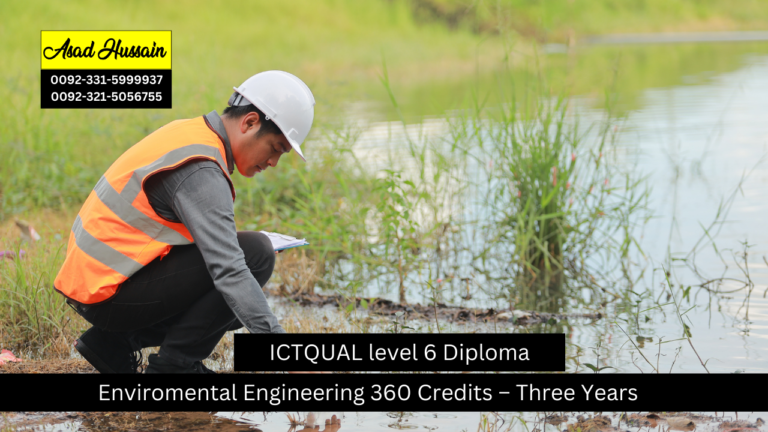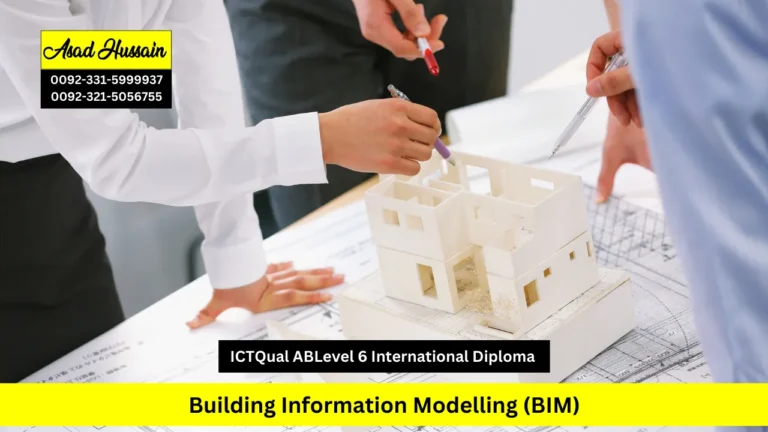Urban planning and smart city development are at the forefront of creating sustainable, efficient, and livable urban environments worldwide. The diploma equips learners with the knowledge, technical skills, and strategic competencies required to design, manage, and implement innovative urban development projects.
ICTQual ABLevel 6 International Diploma in Urban Planning & Smart Cities provides comprehensive coverage of urban planning principles, smart city technologies, sustainable infrastructure, transportation systems, environmental management, and policy frameworks. Learners will gain expertise in integrating digital solutions, data-driven decision-making, and community-focused urban design to address the challenges of modern cities.
Through a combination of theoretical instruction, practical workshops, and case studies, participants will develop skills in urban analysis, smart infrastructure planning, stakeholder engagement, and sustainable development strategies. Graduates will be prepared for careers in urban planning, smart city consultancy, infrastructure management, environmental planning, and government advisory roles. Completing this course enhances professional credibility, strategic insight, and practical capabilities, enabling learners to contribute to the creation of innovative, sustainable, and technologically advanced urban spaces globally.
Program Highlights
Study Units
- Principles of Urban Planning and Smart Cities
- Introduction to Urban Development Projects
- Construction Materials and Methods in Urban Infrastructure
- Spatial Planning and Design Principles
- Project Planning and Scheduling in Urban Projects
- Health, Safety, and Environmental Awareness
- Communication and Stakeholder Management in Urban Planning
- Digital Tools and Construction Technology Fundamentals
- Financial Management in Urban Projects
- Quality Assurance and Control in Urban Development
- Legal and Regulatory Frameworks in Urban Planning
- Professional Ethics and Conduct in Planning
To ensure learners are fully prepared for the diploma , specific entry requirements are established. These criteria guarantee that candidates possess the educational background, professional experience, and language proficiency necessary to engage effectively with advanced urban planning concepts and smart city technologies.
Age Requirements
- Applicants must be 18 years or older to enroll in ICTQual ABLevel 6 International Diploma in Urban Planning & Smart Cities.
- Mature learners over 21 years are encouraged, particularly those seeking career advancement in urban planning and smart city projects.
Educational Requirements
- Candidates should hold a Level 5 qualification or equivalent in urban planning, civil engineering, architecture, environmental studies, or related fields.
- Relevant diplomas, technical certifications, or prior experience in planning, design, or infrastructure projects may also be considered.
Professional Experience
- Work experience in urban planning, civil engineering, smart city development, or infrastructure management is preferred.
- Practical experience in GIS, digital planning tools, sustainability projects, or project coordination enhances the application of course concepts.
English Language Proficiency
- Non-native English speakers must demonstrate proficiency through recognized tests such as IELTS 6.0 or equivalent.
- Effective English communication is essential for report writing, project presentations, stakeholder engagement, and teamwork.
Meeting these entry requirements ensures learners are fully prepared to maximize the benefits of this course. By enrolling in this diploma, participants will acquire the advanced analytical, technical, and strategic skills necessary to excel in urban planning, smart city development, and sustainable infrastructure projects on a global scale.
Upon completing the diploma , learners will acquire advanced knowledge, practical skills, and professional competencies essential for planning, designing, and managing modern urban environments.
1. Principles of Urban Planning and Smart Cities
- Demonstrate a comprehensive understanding of urban planning concepts, smart city technologies, and sustainable urban development.
- Apply principles to design and manage urban environments that optimize functionality, sustainability, and quality of life.
- Evaluate global trends and innovations in urban planning to inform practical solutions.
- Integrate social, economic, and environmental considerations in city development projects.
2. Introduction to Urban Development Projects
- Analyze the lifecycle of urban development projects from planning to implementation.
- Assess project objectives, feasibility, and resource requirements using case studies.
- Apply project management strategies to deliver urban projects on time and within budget.
- Coordinate multidisciplinary teams to achieve project goals effectively.
3. Construction Materials and Methods in Urban Infrastructure
- Evaluate materials and construction techniques for urban infrastructure and public spaces.
- Integrate sustainable materials and innovative methods to enhance project efficiency and quality.
- Assess environmental impacts of construction choices in urban contexts.
- Implement modern technologies to optimize construction workflows and resource use.
4. Spatial Planning and Design Principles
- Apply spatial analysis, urban design, and zoning principles to optimize land use.
- Develop functional, accessible, and sustainable urban spaces for communities.
- Incorporate landscape, transport, and public space planning into design solutions.
- Utilize digital modelling tools to visualize and refine urban layouts.
5. Project Planning and Scheduling in Urban Projects
- Develop detailed project plans and schedules tailored to urban development initiatives.
- Use project management software to allocate resources and monitor progress.
- Implement risk mitigation strategies to ensure timely project delivery.
- Coordinate tasks across multiple stakeholders to maintain project efficiency.
6. Health, Safety, and Environmental Awareness
- Assess risks in urban planning and implement safety protocols for construction sites.
- Ensure compliance with environmental regulations and sustainable practices.
- Develop strategies to minimize hazards in public and private urban spaces.
- Promote a culture of safety, accountability, and environmental responsibility.
7. Communication and Stakeholder Management in Urban Planning
- Apply effective communication techniques with clients, communities, and project teams.
- Prepare professional reports, presentations, and documentation for urban projects.
- Engage stakeholders to gather input and manage expectations efficiently.
- Utilize digital collaboration tools for enhanced stakeholder participation.
8. Digital Tools and Construction Technology Fundamentals
- Implement smart city technologies, GIS, and BIM tools for urban planning.
- Utilize IT solutions to improve project coordination, monitoring, and data analysis.
- Evaluate digital innovations to enhance efficiency, accuracy, and sustainability.
- Integrate technology with practical planning methods to deliver modern urban solutions.
9. Financial Management in Urban Projects
- Prepare budgets, cost estimates, and financial plans for urban development projects.
- Apply cost control techniques and financial monitoring to prevent overruns.
- Conduct feasibility studies and cost-benefit analyses for informed decision-making.
- Optimize resource allocation to maximize economic efficiency and project success.
10. Quality Assurance and Control in Urban Development
- Implement quality management systems to ensure compliance with project specifications.
- Conduct inspections, audits, and continuous monitoring to maintain high standards.
- Apply improvement strategies to enhance project performance and outcomes.
- Ensure adherence to local, national, and international urban development standards.
11. Legal and Regulatory Frameworks in Urban Planning
- Examine urban planning laws, zoning regulations, and planning policies.
- Apply legal knowledge to ensure compliance and mitigate project risks.
- Assess contractual and regulatory requirements for urban development projects.
- Integrate international best practices in sustainable city planning.
12. Professional Ethics and Conduct in Planning
- Demonstrate ethical decision-making and professionalism in urban planning projects.
- Uphold accountability, transparency, and responsibility in planning and management.
- Promote sustainable, equitable, and socially responsible urban development.
- Apply codes of conduct in team management, stakeholder engagement, and project delivery.
By achieving these learning outcomes, graduates will be equipped to plan, design, and manage modern, sustainable, and technologically advanced urban projects. Learners will gain the strategic, technical, and practical expertise required to excel in urban planning, smart city initiatives, infrastructure development, and consultancy roles globally.
The ICTQual AB Level 6 International Diploma in Urban Planning & Smart Cities is designed for professionals, students, and individuals seeking advanced expertise in urban planning, smart city technologies, and sustainable infrastructure. This program is ideal for learners aiming to acquire practical, strategic, and technical skills to lead urban development projects.
Educational Instructors and Trainers
- Deliver training programs in urban planning, smart cities, and sustainable development.
- Guide students in applying theoretical concepts to practical urban development projects.
Environmental Advocates and Activists
- Integrate sustainable design and environmental strategies in urban planning projects.
- Promote eco-friendly solutions and responsible resource management in city development.
Students and Recent Graduates
- Acquire advanced knowledge and hands-on skills in urban planning, smart cities, and digital infrastructure.
- Prepare for careers in urban planning, smart city consultancy, environmental planning, and infrastructure management.
Career Changers
- Transition into urban planning, smart city projects, or infrastructure management roles.
- Develop strategic, technical, and operational expertise to advance careers in planning and consultancy.
Policy Makers and Regulators
- Create, evaluate, and enforce policies and regulations for urban planning and smart city development.
- Promote sustainable, safe, and efficient urban environments through strategic policy implementation.
This course is ideal for learners aspiring to lead innovative urban planning and smart city initiatives. Graduates will emerge as competent, strategic, and environmentally conscious professionals capable of delivering high-quality, technologically advanced, and sustainable urban projects on a global scale.







